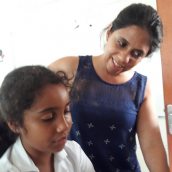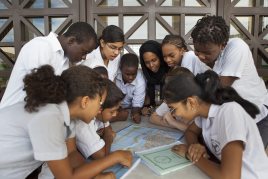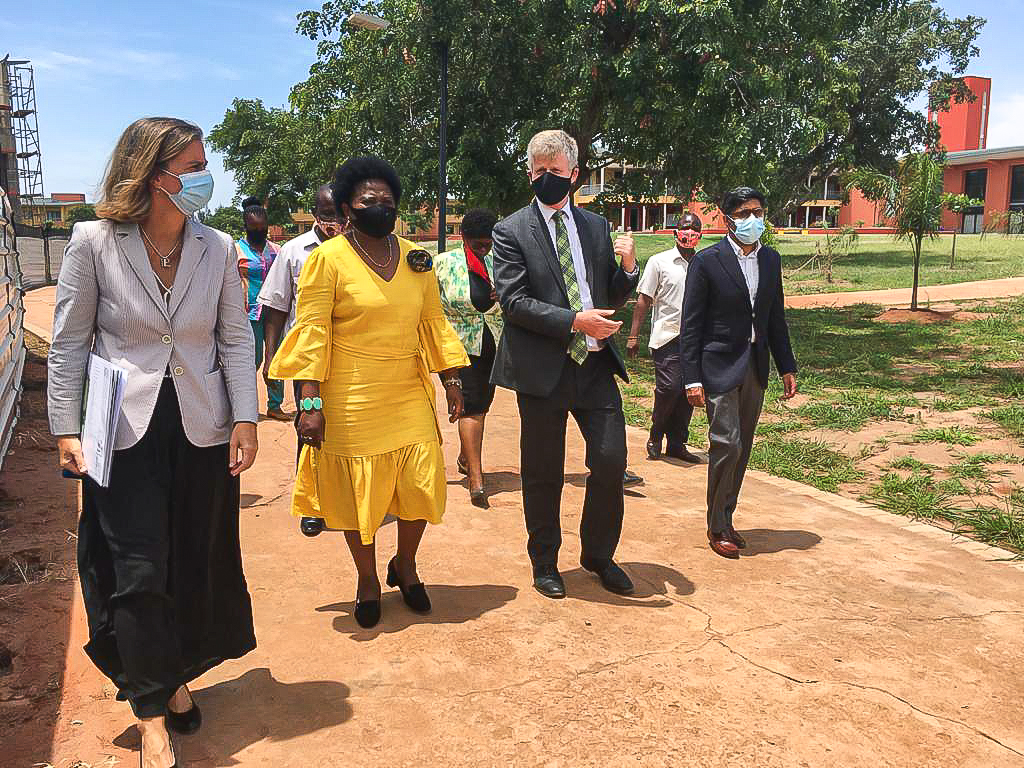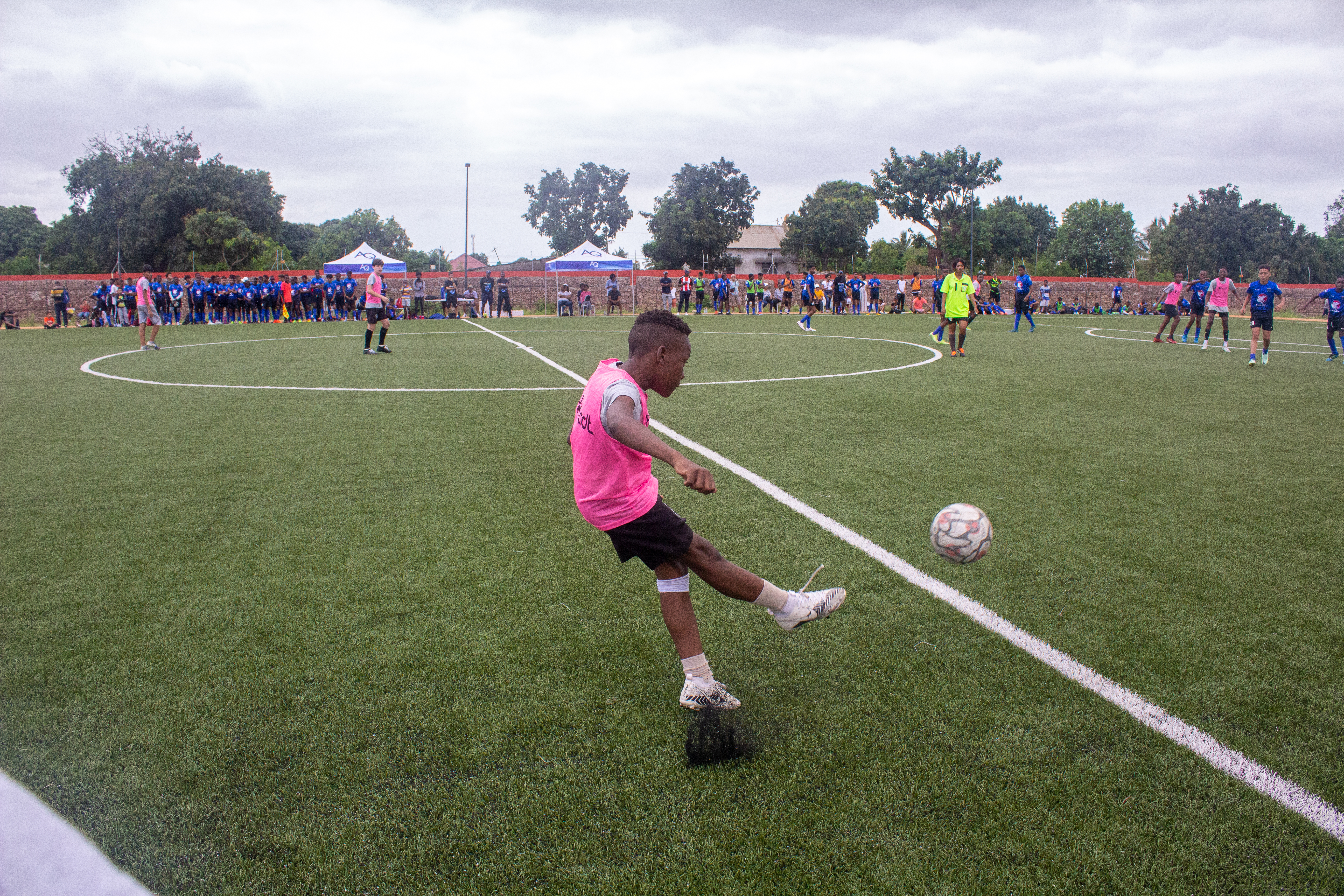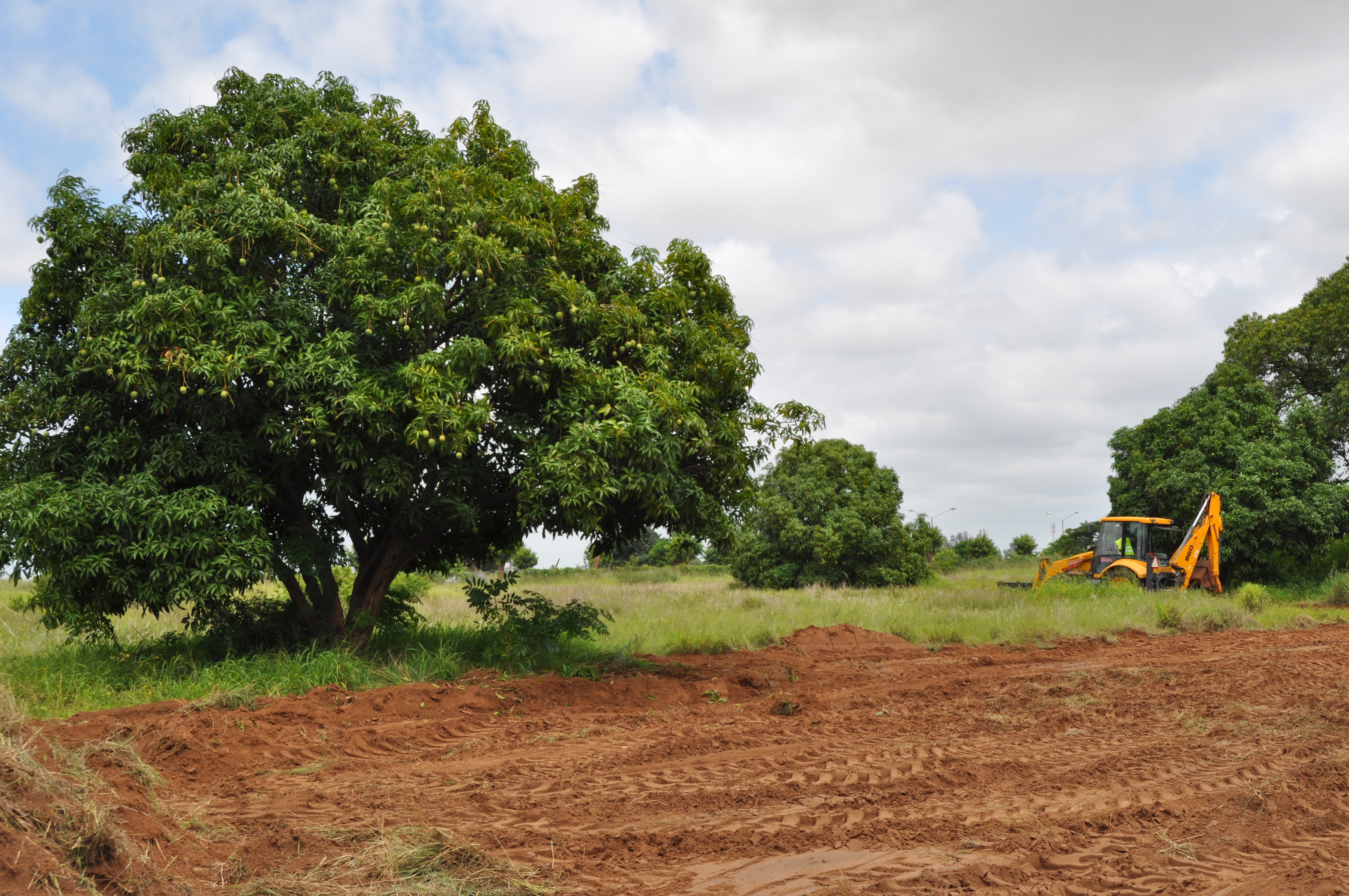Meet the Aga Khan Academy Dhaka's newly elected Student Council and what they have been up to so far.
Nuala Alibhai: Enriching educational and social programmes at the Academy
“The Academy through the International Baccalaureate curriculum has earned a positive reputation for its pluralistic approach, providing a holistic learning environment, developing leaders and achieving educational excellence.”
Nuala Alibhai is the Learning Student Support Coordinator for junior and senior schools at the Aga Khan Academy Mombasa. In this role, she works in collaboration with the Academy’s Principals to develop on-going systems of support for the student community. This includes providing leadership, management and advice on inclusion within the school to develop a differentiated programme that both challenges and meets the needs of students. She also ensures that the Student Support Unit effectively identifies students with any needs for additional support need, including gifted and talented, as well as vulnerable students.
She was born in Kenya where she acquired her basic education. She obtained her undergraduate degree from University College London as Speech and Language Therapist. Later she pursued her Masters in Inclusive Education, at the University of the West of Scotland where she completed her research in inclusive education at the early years level.
At the Aga Khan Academy Mombasa, Nuala works on a Value-based Education Programme, as a Curriculum Designer, through the Professional Development Centre at the Academy. She came to the Academy with a diverse background in inclusive education at a school, community and public policy level. “I was keen to apply this knowledge and skills within a mainstream school setting, to enable every student to achieve and succeed in school, career and life,” she remarks.
It has been Nuala’s endeavour to improve social outcomes through strategic planning and capacity building at the local government and community level. She is also passionate about designing and developing alternative educational programmes for vulnerable children, in order to ensure that they realise their full potential, so they can succeed in life as dignified equals. She has achieved both of these objectives by working for the past 15 years as a speech and language therapist and as an educational consultant in both the private and public sectors in Kenya and the UK.
Since September of 2016, Nuala has been with the Academy and appreciates how the Academy has provided her with opportunities to develop her teacher training skills and curriculum development skills. Nuala says, “I enjoy working with teachers who bring their hands on experience in the classroom and subject relevant knowledge to the table so we can enrich the educational and social programmes at the Academy.”
When asked what led her to choose a career in teaching, Nuala replies, “Karma! I started my career as a health professional but on my return to Kenya, I was sought after to do training, policy work and change management in the education sector. As my experience and confidence in the area grew, I began specialising in education. I have always seen myself working with children, so education was also an attractive choice.”
According to Nuala, the International Baccalaureate (IB) curriculum and the Aga Khan Academy strands set the Academy apart from other educational institutions. “It is one of the few schools in Kenya that offers the IB curriculum, which I consider to be the gold standard in education because of its holistic approach, academic rigor and emphasis on community service. The strands are added dimensions that help students make better sense of themselves, others, the world around them and the interconnectedness of all these elements.”
In terms of ensuring a climate of pluralism on campus where students from different racial, ethnic and faith backgrounds work together, Nuala feels the pluralism strand is already integrated into the lessons in the classroom, extracurricular activities after school and during out of school activities. “Collaboration skills are one of the approaches to teaching and learning, so students are exposed to activities that encourage and enable them to work with others who are different from them and have different opinions than them. They are encouraged to listen to others respectfully and consider their perspectives. This builds communication skills and empathy in students. These skills are then transferred to the student’s day-to-day interactions and not only in the classroom,” she reiterates.
When asked about the most rewarding aspect of teaching at Aga Khan Academy Mombasa, she replied, “The collaborative spirit and practice amongst the staff.” She further adds that there is appreciation and inclusion of every individual’s knowledge, skill and experience in decision-making. According to Nuala, strategies and unit plans are collectively produced not only to enhance the quality of the teaching and learning experience for the student, but also to allow the adult to grow, as a professional, in the process. “The teachers on the whole are approachable, warm and a joy to work with,” she comments. Parents are also involved as much as possible in their children’s education, she mentions. Parents get regular updates from the school on their child’s progress and well-being and are given recommendations of how to extend the learning and support beyond the walls of the school, she adds.
Nuala strongly feels that her position at Aga Khan Academy Mombasa has given her the opportunity to individualise the learning for every student. “My prayer is that this opportunity helps them become more self aware, reveal their talents and inspire them to make bigger strides forward with direction and confidence.”
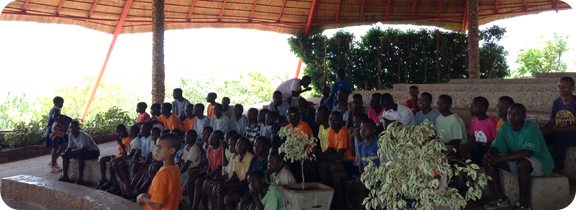
Community Links
The vision set out by His Highness the Aga Khan is for each Academy to become an integral part of the greater community in which it resides. This value applies not only to the students but also to the teachers at each of the Academies.
This focus comes into play at the admissions stage where potential students are chosen not only for their thirst for knowledge and intellectual merit, but also for having a high level of social awareness. This includes the desire to work towards, and instigate, positive change and the potential for leadership in community service.
Community service plays a large part in each of the levels of education offered at the Academies, which in turn allows for graduates that are civic minded. In choosing the sites for each school, special attention is paid to not only what the area can offer the students but also what the Academy can offer the community.
While supporting students in developing an understanding of global issues, the Academies’ educational programmes also reflect great sensitivity to local languages, history, cultures and environment. Each school is committed to inspiring and empowering students to use their gifts for the betterment of humanity.
Creativity, activity, service
In choosing the International Baccalaureate programme, the Aga Khan Academies chose to incorporate the creativity, activity, service (CAS) component.
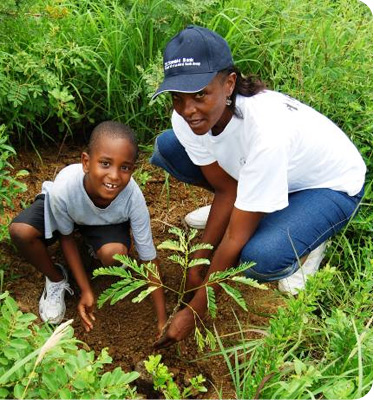
This integral programme is designed to create global citizens through active participation in and reflection upon experiences gained through a variety of creative endeavours, physical activities and community service projects.
Students develop a greater level of self-confidence, teamwork and leadership skills, and a sense of civic responsibility.They take part in sustainable projects that have real and lasting effects on the greater community. And they develop strength of character and an understanding of their ability to bring about change.
The CAS programme is valued for its power to transform not only the lives of students but also those with whom the students interact.
It also serves as a platform for interpersonal exchange, personal growth and greater understanding of the issues we face as a global community.
For more information of our CAS projects in action, visit our school websites.
Professional development outreach
Emphasis on community outreach and service is extended to the staff at each Academy as well, especially the teaching staff.
Each school will incorporate a Professional Development Centre (PDC), which will promote excellence in teaching on campus and strengthen the profession of teaching in the region as well.
"At the Academy, I feel part of a community. I am active in service projects that are making a real and lasting difference to people. I had no idea how important this would become for me."The Academy’s PDC supports excellence in teaching by promoting best practices in teaching and learning and by providing ongoing, collaborative training of Academy faculty as well as teachers and headteachers from neighbouring government, private and not-for-profit schools.
Faculty members are also enriched by opportunities to collaborate with colleagues across the globe and to teach abroad within the Aga Khan Academies network.
Welcome to the Aga Khan Academy Dhaka
You can also keep up-to-date with latest news on the Aga Khan Academy Dhaka on our Facebook page.
Multimedia
A better world through education: The Aga Khan Academies
Recent News
Recently, Ayesha Mehjabeen Rahgir, a Grade 10 student at the Academy visited the US to take part in the Exeter Summer programme at the Philips Exeter Academy.
Spotlights
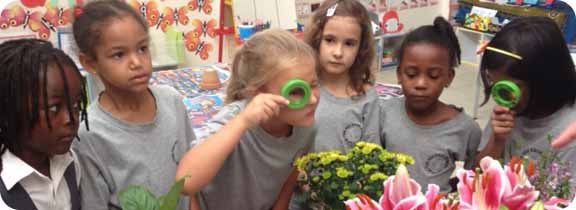
Student Leadership
The Academies’ programmes aim to develop students who are ethical, public-minded and who possess a pluralistic outlook. Both curricular and co-curricular activities work to educate effective home-grown leaders who are actively engaged in their local communities and are aware of the implications of their actions. Through their participation in co-curricular clubs, students are encouraged to take on leadership positions in a variety of different forms (e.g. house leaders, student council, team captains, dorm duties).
Not only do these opportunities provide an environment to explore and enhance skills such as cooperation and problem solving, they also enable students to set personal goals and challenge themselves.
Student leadership activities vary from community service opportunities to sports and expressive arts. Students have opportunities to participate in the Student Representative Council and other similar activities.
Leadership activities instil in participants a sense of community ownership, creativity and a collaborative spirit, and prepares them for a lifetime of active engagement and leadership.
"The conviction that home-grown intellectual leadership of exceptional calibre is the best driver of a society’s destiny, underpins the Ismaili Imamat’s endeavour to create catalytic centres of educational excellence."
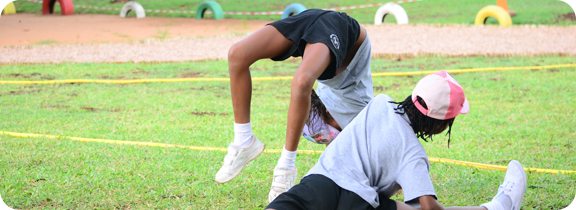
Co-curricular Programmes
Co-curricular programmes enable students to realise their potential in a variety of settings beyond the classroom. Students develop a sense of self-awareness and an understanding of school and community needs and opportunities. They also learn how to apply their gifts and skills to make a positive impact.
At the Academy, we believe in a balanced, rounded, comprehensive school experience. As this includes both academic and co-curricular experiences, we encourage our students to do their best both in and outside the classroom.
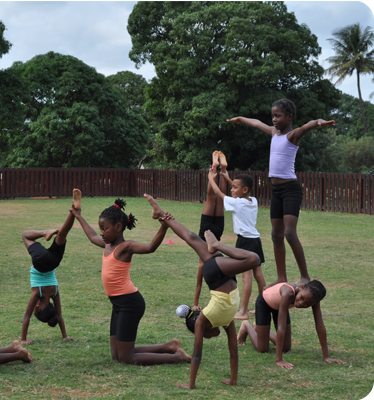 We will offer outstanding sports facilities that will include:
We will offer outstanding sports facilities that will include:
- swimming and diving pools
- cricket, soccer and hockey pitches
- basketball and volleyball areas
- tennis and squash courts
- dance studio
- gymnasium
- athletics tracks.
Children with special sporting gifts will be encouraged to develop their talents in every way. Children with special gifts in music, art or drama will similarly be encouraged through opportunities to practise and perform while at the Academy.
Our co-curricular programmes are clustered into three main streams, each with a different focus:
Creative expression
Whether through visual or performing arts, this cluster engages students to think creatively and express their identities and thoughts aesthetically. Through theatre, art, music and drama, students learn to work together and infuse their projects with values and lessons from other parts of their schooling. Individual and collaborative creative projects emphasise growth and development through personal challenge, ultimately resulting in achievable personal goals.
Action
The student as a reflective practitioner is a basic tenet of the action cluster. Through physical sport – both competitive and non-competitive – students are challenged in their physical growth, and learn values such as good sportsmanship, teamwork and ethical behaviour. We encourage them to extend themselves by trying different activities and working with teammates to pass on their knowledge. In line with developing the student as a whole, a healthy lifestyle complements and enhances academic achievement.
"The Academies will be concerned with the whole of the human being – mind, body and spirit – and with the broad range of human aspiration – intellectual, moral, artistic, physical and spiritual. The fact that these are residential academies will contribute enormously to these broad objectives, encouraging students to identify more completely with the school, to help lead it and shape its environment."
Citizenship
At the Academy, we encourage knowledge and understanding of humanity and civil society. Through their involvement in citizenship activities, students gain an understanding of the practical implications of their work and study. By collaborating with community groups on sustainable projects, they develop an appreciation for human rights and human dignity, and of how their actions impact the world around them.
To learn more about the Academy's programme, please visit the Academic Programme page.
